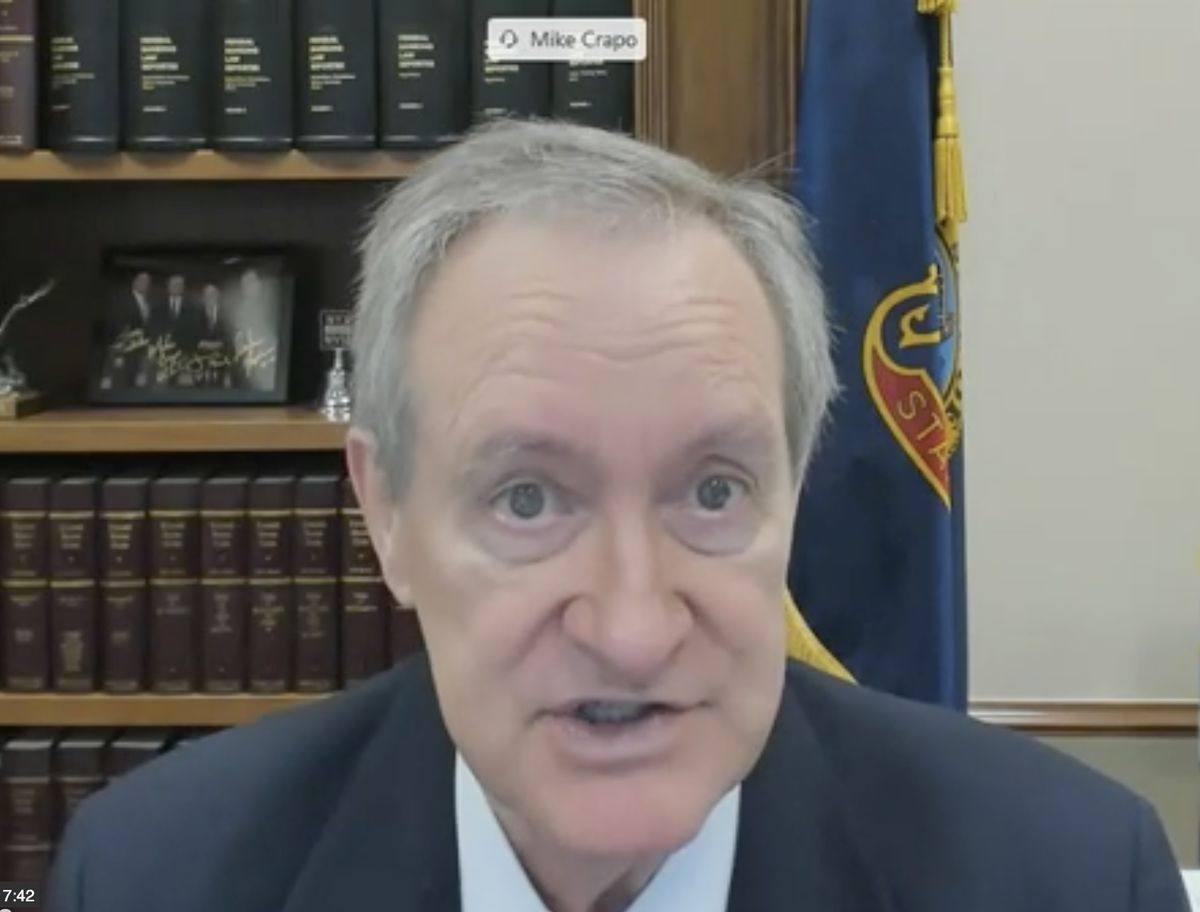 On June 30, the U.S.Senate Banking Committee held a hearing that covered a whole host of policy topics on the digitization of money and payments.In what was described as a move closer to the U.S.Digital Dollar , the hearing also covered a broad swath of issues that impact the crypto and blockchain space.
On June 30, the U.S.Senate Banking Committee held a hearing that covered a whole host of policy topics on the digitization of money and payments.In what was described as a move closer to the U.S.Digital Dollar , the hearing also covered a broad swath of issues that impact the crypto and blockchain space.
Chairman Mike Crapo (R-UT) of the Senate Banking Committee described how Covid-19 has forced Americans to go all-digital at a rapid pace.
According to Crapo, his Committee was keen to learn more about new technologies that could replace our current payments system, understand who the new players are, and determine any regulatory policies as well as what the role of the U.S.
Government should take in creating its own central bank digital currency.
In his opening remarks, Crapo explored the long-standing promise of cryptocurrencies to provide faster, cheaper global payments with a degree of anonymity.Crapo introduced his colleagues to stablecoins as, “…a new type of cryptocurrency [that] has emerged aimed at achieving these benefits while marginalizing the volatility of some of its predecessors.Stablecoins, which may be issued by a central entity, deliver price stability by having their value pegged to another asset, like commercial bank deposits or government- issued bonds.”
Overall, Crapo embraced and praised the innovation of banks, FinTechs, and payment firms and also signaled the desire to have the U.S.be the leader.Crapo stated, “And as I said in our last digital currency hearing, it seems to me that these and similar innovations are inevitable, beneficial, and the U.S.
should lead in their development.”
The Ranking Member of the Committee, Senator Sherrod Brown (D-OH) started the discussion of his opening statement by exploring the plight of both female and ‘Brown and Black Americans’ who as America’s essential workers, face barriers to banking services that result in higher costs in making payments for those who can afford it the least.Brown’s solution was for the Federal Reserve to offer banking services, laid out in his new bill called the ‘Banking For All Act.’ The bill would create free bank accounts at both traditional banks and post offices, with no service fees and instant access to paychecks and Covid-19 stimulus payments.
Brown, who has a strong history of working in a bipartisan fashion with the Chair, took a much harsher view of crypto and its promises to help the unbanked.
In a blistering critique of Bitcoin that made Trump’s “based out of thin air” comments look mild, Brown remarked, “We heard all kinds of promises about how cryptocurrencies like Bitcoin or Ethereum would fundamentally change our relationship with the banking system.Workers would be able to efficiently and cheaply transfer money, make online payments, or buy groceries, all without a bank account.
But that’s not what happened—Bitcoin is primarily used by wealthy investors.”
Brown went further on his concern regarding Bitcoin companies, explaining, “These companies promised their algorithms would guarantee “innovative” products and services to people locked out of the financial system.That’s simply not true – the algorithms use biased data, and we end up with more discrimination against the very people they say their products will help.” According to Brown, crypto firms wanted all the benefits of being a bank; however, they wanted to avoid being regulated like one.
The full hearing can be viewed on the Senate Banking Committee website as well as the testimony of each of the witnesses.Witnesses for the hearing included the Honorable J.Christopher Giancarlo, Senior Counsel, Willkie Farr & Gallagher LLP and former Chairman, U.S.Commodity Futures Trading Commission, Mr.Charles Cascarilla, Chief Executive Officer And Co-Founder, Paxos, and Professor Nakita Q.Cuttino, Visiting Assistant Professor Of Law, Duke University School of Law.
Based on the numerous policy impacts that arose during the hearing, I will be sharing with my readers three follow-up stories on this hearing, covering the topics of ‘FinTech or FringTech? Helping the Unbanked With Emerging Technology’, ‘Stablecoins: Threat Or Opportunity For America’, and ‘Fistful of Digital Dollars: Using Pilot Projects To Launch U.S.
CBDC.’
Jason Brett
I am a former U.S.Regulator with the FDIC, compliance examiner for the Making Home Affordable Program (HAMP) with the Treasury, and have been active in bitcoin and
… Read More
I am a former U.S.Regulator with the FDIC, compliance examiner for the Making Home Affordable Program (HAMP) with the Treasury, and have been active in bitcoin and blockchain since 2016.
I served in in the FDIC’s Capital Markets and Finance Divisions during the Global Financial Crisis of 2008-2009 working on qualitative, quantitative issues covering IndyMac Bank, Washington Mutual, Wachovia, Lehman Brothers, AIG, Citigroup, Merrill Lynch and Bank of America.I supported the FDIC’s Board at IndyMac bank with deposit run analysis, researched and explained synthetic collateralized debt obligations, credit default swaps, compiled the exposure of net notional derivatives in the financial system, and analyzed new programs by the Federal Reserve Board to stabilize the economy.I became interested in the importance of trust in the financial system and how the U.S.government manages the concept of trust.
With the introduction of bitcoin and blockchain technology by a colleague in 2016, I entered into the blockchain industry, first with the Chamber of Digital Commerce as Director of Operations for Policy and then as the Policy Ambassador for ConsenSys.I am currently the founding CEO and President of a new non-profit called the Value Technology Foundation, with the purpose to conduct exclusively educational and charitable activities with regard to digital assets, blockchain, distributed ledger technologies and other relevant “value” technologies for the public welfare and economic benefits of the citizens of the United States.
I hold a degree from Cornell University in Government (BA, 1997) and the Kogod School of Business (MBA, 2009)..
